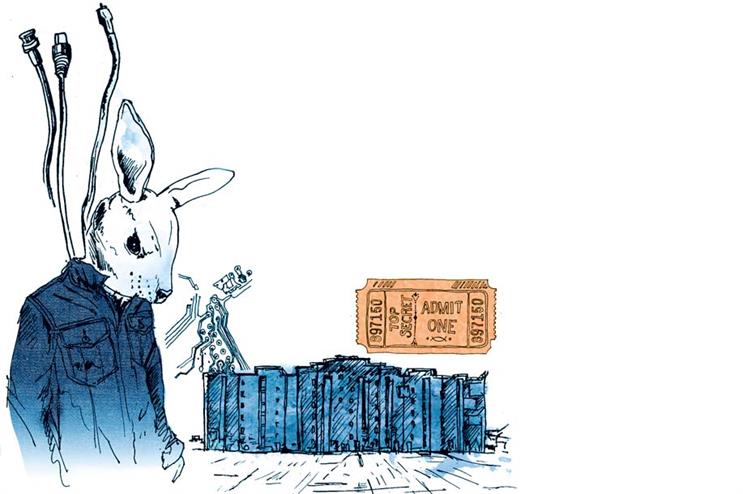
Your doorbell ringing in the middle of the night; people in animal masks accosting you in the lift at work; an unmarked van pulling up next to you as you step out of Sainsbury's. As examples go for how a secret event in the next few years may unfold, these might seem a bit sinister.
But with secret events at the risk of becoming mainstream, organisers will need to build excitement in unusual and unexpected ways to keep an audience coming back for more.
Pushing boundaries and catching guests off-guard will be key, according to Ed Templeton, director of Shuttlecock Inc. The company provides immersive pop-up experiences, many of which are held at secret locations (see p26).
"The surprise of a quirky venue is no longer enough, so by creating additional content and managing social media channels, organisers of secret events are engaging with audiences days, weeks or even months beforehand," he says.
"If we can blur the lines between what's real and what's not before we're even open, we know we'll be doing something seriously cool."
Nick Morgan is group CEO at Big Cat Group, whose sister organisations include The Fair and House of Experience.
The agency has worked on several Secret Cinema experiences, including The Grand Budapest Hotel and The Shawshank Redemption. Morgan believes the demand for immersive experiences is increasing, which holds no bounds for a future for secret events driven by technology and creativity. "People want to feel part of something and enjoy unison experiences," he says. "Look at the National Theatre diversifying with producing The Drowned Man - this demonstrates the willingness of audiences to participate in an experience."

Technology will play a pivotal role in secret experiences, as people push for more interactivity. "The audience will have even greater access to secret events and be able to interact with them and change their outcomes, whether it be through basic voting mechanics or more advanced technology," says Morgan.
And it's not just about attending - finding out about a secret gig or event is now forming part of the experience, so it's imperative for brands to work on curating the customer journey.
"Searching and discovery is part of the experience and adds to the excitement when you can announce to your peer group you have discovered a new experience first," says Morgan.
Suz Mountfort, founder of 'clandestine dining adventure' Gingerline (see p26) - which held an event in a disused council building where people were led through a secret entrance to a spaceship-themed experience - agrees that building a community around a secret event will be vital. She adds, however, that while social media will play an increasing role in how secret events of the future will be both broadcast and realised, it can also be an event's undoing.
"People are part of our club and play by the rules. We ban Twitter and Facebook at our events - no one tweets, so no one can give the game away," Morgan says. "Using technology such as social media will be about achieving the right balance to keep the events exclusive and to encourage a community feel."

